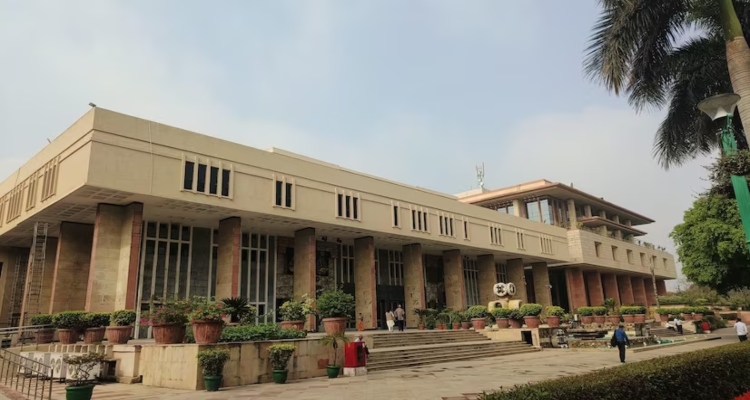
The Delhi High Court has undertaken judicial review proceedings concerning a Public Interest Litigation that scrutinizes the Employees’ Provident Fund Organisation’s (EPFO) recruitment policy for Young Professionals.
At the core of the dispute is the preferential weightage granted to candidates possessing law degrees from the top 40 institutions ranked under the National Institutional Ranking Framework (NIRF).
The petition challenges this criterion as an unconstitutional impediment to equal employment opportunities, alleging that it entrenches academic elitism and marginalizes graduates from institutions outside the NIRF top tier.
Structural Bias In Recruitment Assessment
The petitioner contends that the EPFO’s selection framework, which assigns an additional 15-30 marks out of 100 to candidates from the specified institutions, constructs an inherently stratified evaluative mechanism. This, it is argued, disproportionately disadvantages graduates from universities operating under the purview of the Central and State Governments that do not fall within the top 40 NIRF rankings. By institutionalizing an asymmetrical assessment model, the recruitment process purportedly perpetuates hierarchical academic preferences that undermine the principle of equal opportunity in public employment.
Constitutional Scrutiny
The PIL invokes Articles 14 & 16 of the Indian Constitution, asserting that the recruitment policy violates the fundamental rights to equality and equal access to public employment. The legal argument foregrounds the necessity of objective, non-arbitrary selection criteria within state-administered hiring processes.
It further critiques the policy’s reliance on ranking-based preferences, arguing that such a model lacks doctrinal legitimacy under constitutional jurisprudence.
The petition underscores broader concerns regarding meritocratic evaluation in public sector employment, questioning whether NIRF-based differentiation constitutes an extraconstitutional imposition on the hiring process.
Judicial Oversight & Implications
A Division Bench comprising Justice Devendra Kumar Upadhyay and Justice Tushar Rao Gedela has recognized the substantive constitutional questions raised by the petition, prompting the issuance of a formal notice to the relevant ministry of the Central Government.
Further hearings have been scheduled for April 23, with the court poised to conduct a rigorous examination of the recruitment framework’s compliance with constitutional mandates.
This case holds significant implications for the evolution of legal standards governing public sector hiring. A ruling in favor of the petition could necessitate a structural recalibration of selection methodologies within government institutions, ensuring that recruitment protocols align with principles of fairness, inclusivity, and constitutional propriety.
The adjudication of this dispute may inform future discourse on administrative law, institutional accountability, and the legal tenability of ranking-based preferential treatment in state employment frameworks.
Read More: Supreme Court, Delhi High Court, States High Court, International




